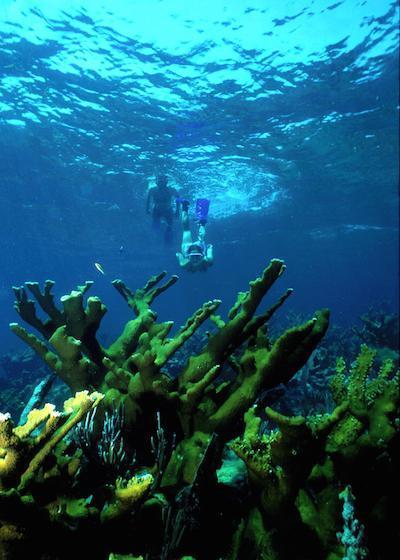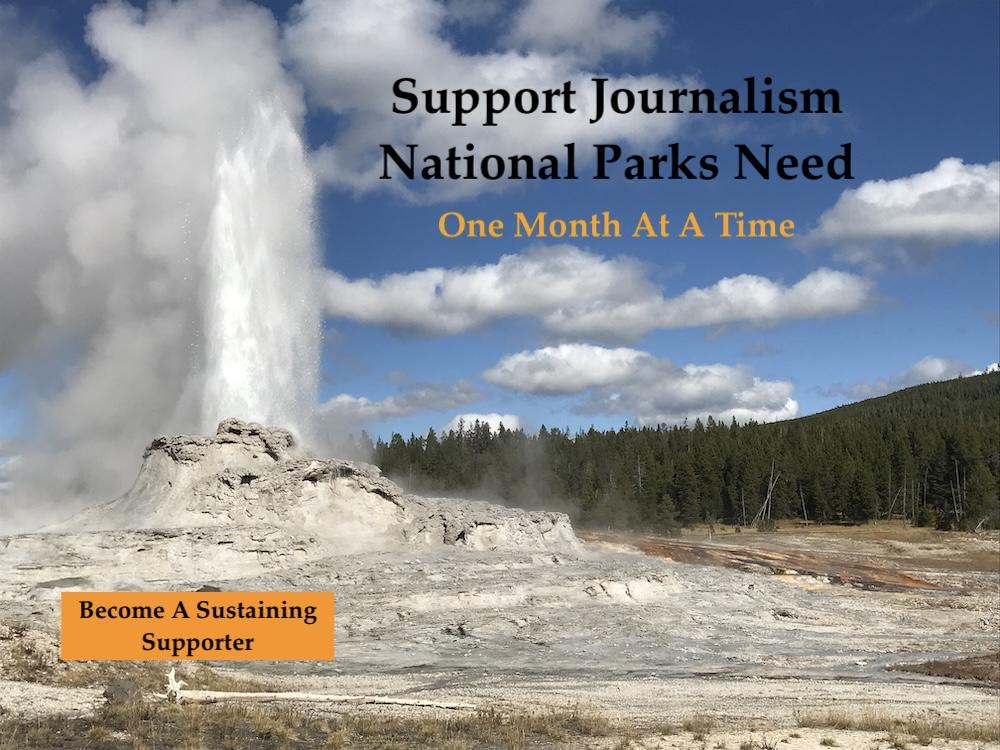Editor's note: Not everyone agrees with the National Park Service's approach toward restoring its fishery. Carl Liederman, president of Capt. Harry’s Fishing Supply, believes the Park Service had a predetermined decision on creating a marine reserve zone that would be off-limits to recreational fishing, and didn't properly reach its decision. He submitted the following op-ed in response to Traveler's story on congressional efforts to block creation of the zone.

Not everyone agrees that the National Park Service has the correct solution to improving the health of Biscayne National Park's fisheries/NPS
As someone who has been actively involved in the development of the Biscayne National Park general management plan for over a decade, I was frustrated to read the misleading and inaccurate quotes from the National Park Service and the National Parks Conservation Association in the recent National Parks Traveler article, Florida Congressional Offices Want To Block Biscayne National Park's Fisheries Plan.
Particularly troubling were the disrespectful attacks on our Congressional representatives for working to ensure that their constituents and the state aren’t completely ignored in significant decisions like closing fishing access to such a vitally important area to our community.
I am the president of a small family business located in Miami, Florida. We have been in business for over 40 years and employ 30 people. Because our business has a huge financial dependence on healthy and sustainable fisheries, I have been involved in fishery issues on the local, state, and federal level for the past 30 years. Without sustainable fisheries our business and the jobs it supports cannot survive.
Most of Florida’s most popular fisheries are managed by the Florida Fish and Wildlife Conservation Commission (FWC). Working in concert with stakeholders and other agencies, the state has done a remarkable job in managing our fish and wildlife resources. From snook, seatrout, and redfish, to tarpon, bonefish, and permit, these stocks continue to thrive under the state. All of these successes have occurred by managing these resources, not closing them down.
I, and others in the recreational fishing community, agree with the FWC that fishing closures are a tool in the fisheries management toolbox, but should only be applied when clearly supported by science. I stand by the FWC in its opposition to the marine reserve in Biscayne National Park because it will do nothing to improve fisheries resources in the park.
The marine reserve is poorly designed and not scientifically justified. For example, the Dry Tortugas marine reserve, which the FWC supports, comprises a large area that has been identified as an important spawning area for many snapper/grouper species. It was developed in close consultation with the state and stakeholders.
The Biscayne marine reserve meets none of these criteria. It is insignificant from a biological perspective and will only serve to deter fishing participation and prevent the public from enjoying some of the most popular and productive areas of the park, amounting to over 30 percent of the reef tract.
In 2004, I was asked to participate in Biscayne National Park's fisheries working group. Our group was given the opportunity to help identify deficiencies in the fisheries resources within the park and then craft methods to restore these fisheries. Unfortunately, as the process moved forward, it became apparent that the park had its own agenda and was going to implement a marine reserve, regardless of stakeholder input or scientific justification.
The working group identified a series of comprehensive recommendations to improve the condition of the park’s fisheries resources, including a boating permit that would help fund management activities, more stringent species-specific fishing regulations, and improved enforcement and education. I am confident that these strategies would work if given a chance. But because the working group did not recommend a marine reserve, our recommendations essentially went ignored.
Biscayne National Park officials are now touting the lengthy public process they undertook during the development of the general management plan, but ultimately it was all for show as the National Park Service ignored all of the concerns raised during this process by the its own fisheries working group, not to mention the broader recreational fishing community and the FWC, and forced through its predetermined marine reserve anyway.
I applaud Reps. Ileana Ros-Lehtinen, Carlos Curbelo and Mario Diaz-Balart for their legislative leadership to ensure that the state has a say in important fisheries management decisions. Rather than catering to special interests like the National Parks Conservation Association, these legislators are listening to their constituents and working to ensure that the public isn’t unnecessarily locked out of public waters.



 Support Essential Coverage of Essential Places
Support Essential Coverage of Essential Places







Comments
One sided? Predetermined? If the one side presented and the predetermined outcome is preserving the flora, fauna, and environment, that isn't a bad thing.
"that isn't a bad thing."
Its that kind of thinking in the absolute that is the problem.
The outcome was predetermined by people that don't fish. They want to swim around in an aquarium and look at fish and coral. If there is no take from the area then, yes there will be more fish in the area but that will do nothing for the resource. That is Mr Lieberman's point and the FWC's point. It is basically a lazy and unproven way to manage a resource.
As far as preserving the coral/flora/fauna divers do way more damage than fishermen do. You need look no farther than the other marine reserves in the Keys where fishing has been banned and diving allowed. This is a false premise that is typically used by anti-fishing and anti-hunting groups. Fishing is not the problem people are and believe me if they could keep you out they would, this is the first step.